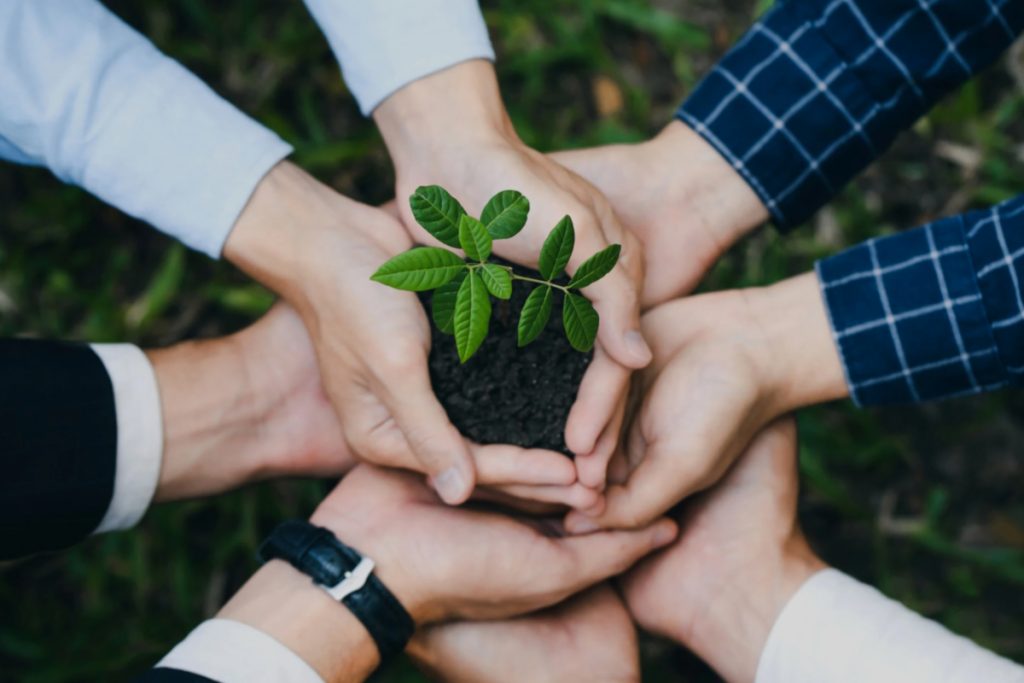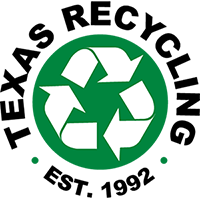In today’s world, the public is becoming more aware of the environmental impact of consumer goods. Also, buyers are increasingly concerned about the products they put in their bodies, on their bodies, and in their homes—so much so that there is a trend to purchase products that promise to be made with pure, clean, and wholesome ingredients. But what does that really mean, and do consumers understand what exactly they’re buying? For instance, do you know what it means when brands print natural or organic on a food label? Could you confidently explain the difference between recyclable and sustainable? If we, as consumers, expect to get what we want, we must be able to navigate the terminology confidently.
Texas Recycling: Our Dallas Recycling Center Helps Your Business Earn Revenue by Recycling. Call 214-357-0262
Is It Natural or Organic? Learn the Difference Today
Product labels use many different terms to give buyers the impression of being eco-friendly. Perhaps you’ve seen these terms already: all-natural, nothing artificial, non-toxic, plant-based, and clean. This list goes on and on. However, what is so confusing is that many of these terms aren’t regulated by entities like the Food and Drug Administration. As a result, these and many other terms mean different things to different people.
For instance, corn syrup isn’t artificial. Hemlock is plant-based. Yet these are still not widely considered “healthy” ingredients.
Let’s look more closely at some of the common terms found on consumer product labels. Specifically, natural or organic and what it means when a product is recyclable or sustainable.
NATURAL
While the FDA advises companies to be transparent in their product labeling practices, the term natural is not legally defined. To some consumers, it might imply that the product is manufactured in a way that conserves the natural integrity of the raw ingredients. For others, it may also mean that the product was minimally processed, is free of harmful chemicals, and doesn’t include pesticides or artificial ingredients.
With so much inherent ambiguity, producers can create their own definition of the term natural—often resorting to fancy terms like “all-natural,” “100% natural,” or “made with natural ingredients.”
ORGANIC
Unlike “natural,” the term organic is regulated. USDA-certified organic foods are grown and processed according to federal guidelines addressing, among many factors, soil quality, animal raising practices, pest and weed control, and use of additives. Organic producers rely on natural substances and physical, mechanical, or biologically based farming methods to the fullest extent possible.

That means manufacturers must have organic certifications to use the term “organic” on their product labels. Several different organic categories can be placed on the label.
- 100% organic — All ingredients have been organically produced except for water and salt.
- Organic — 95% or more of the ingredients are organically produced except for water and salt.
- Made with organic ingredients — Between 70-90% of the ingredients are organically produced.
- Organic [X] — Indicates a specific ingredient that was organically produced.
Texas Recycling: A Dallas Recycling Center to Recycle Paper, Cardboard, Industrial Metal and More! Call 214-357-0262
RECYCLABLE vs. SUSTAINABLE
Beyond the terms above, there continues to be much confusion among consumers over the difference between recyclable and sustainable. Consumers often believe these terms are the same or interchangeable. But that couldn’t be further from the truth. At its core, being “recyclable” refers to the ability of a material or product to be processed and transformed into new materials or products. In other words, it’s about giving a second life to items that would otherwise end up in landfills or contribute to pollution.
Examples of everyday recyclable items include, but are certainly not limited to, aluminum cans, cardboard boxes, and paper products such as newspapers, office paper, mail, etc. Educating consumers about recyclability is also crucial in promoting recycling behavior. Providing clear and accessible information about which materials are recyclable, how to properly sort them, and the importance of avoiding contamination empowers individuals to make responsible choices.
The term “sustainable” has a more specific definition than more general terms like “green” and “eco-friendly.” Sustainable means that the environment’s future is accounted for in the production process. In other words, by labeling a product as sustainable, the producer says that the product’s production will not affect future generations. Therefore, resources like energy are used minimally or are renewable, workers’ health is not impacted negatively, and pollution is not a manufacturing by-product.
To give you a better idea of the differences between recyclable and sustainable, let’s look at recyclability and sustainability in packaging. Using this example, recycling means that your product’s packaging can be processed and reused to make new products. Meanwhile, sustainability considers the entire lifecycle of the packaging, including how it’s sourced, produced, used, and disposed of. Examples can include biodegradable packaging, compostable materials, or designs that reduce material altogether.
Basically, society does not pay a high environmental and social cost for the product you’re purchasing.

Texas Recycling: Recycle Metal, Cardboard, Paper, Newsprint and More! Call us for the best recycling prices: 214-357-0262
Is There a Relationship Between Recycling and Sustainable Practices?
While the terms recyclable and sustainable are not one and the same, they are closely connected. In fact, the act of recycling is a key element of sustainable practices because it reduces waste, conserves natural resources, and lowers environmental impact. For instance, using a refillable notebook instead of single-use paper is a great example of the connection between recycling and sustainable practices because the notebook can be used repeatedly rather than tossed in the trash. The same goes for repairing clothes versus buying new ones, using reusable shopping bags instead of plastic ones, or using both sides of a sheet of paper before recycling it.
Reusing materials like paper, cardboard, or metal reduces the need for raw material extraction, which helps protect natural ecosystems. It also lowers energy consumption and greenhouse gas emissions compared to producing new materials from scratch. Sustainable practices go beyond recycling to reduce waste, reuse items, and make eco-friendly choices, all of which contribute to a healthier planet.
Industrial and Commercial Recycling Solutions with Texas Recycling
Do you buy natural or organic products for sustainability? Want to help the environment even more? Texas Recycling has customized recycling programs to help companies embrace environmental responsibility while preserving the bottom line. Our professional and personalized service will exceed your expectations.
While we are a leader in recycling paper, newsprint, cardboard, aluminum cans, and tin, we also handle various industrial metals. Texas Recycling is dedicated to improving the environment by providing the highest-quality recycling services in the D/FW Metroplex. Our creative solutions help companies embrace environmental responsibility and sustainability.
Texas Recycling also offers its clients the best possible personal service. Call us at 214-357-0262 to learn more about long-term commercial and industrial recycling opportunities for your business.
From scheduled pickups for large commercial entities to our Public Buy Back Center for individuals and smaller businesses, we have a recycling solution to meet your needs.
Help the environment and your bottom line by calling Texas Recycling at 214-357-0262 to get started on a commercial recycling or industrial recycling program for your organization.

